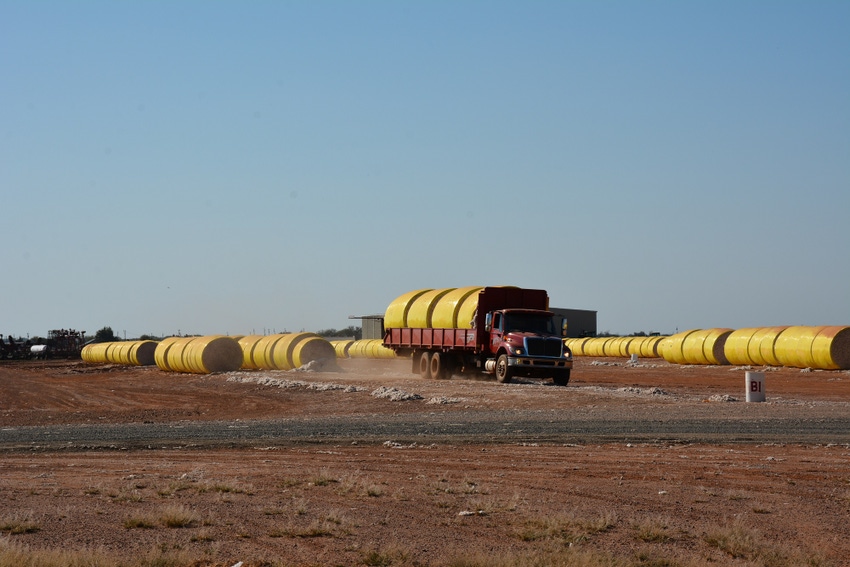
In spite of what seemed to be attractive promises to rural voters last year leading up to the general elections, U.S. agriculture has so far seen little positive development to help them as they struggle to put food, not only in the nation's pantry, but also on their own tables. That's according to a magazine article published last week by an Ivy League University.
The article charges commodity prices are low, trade deals are increasingly at risk, and the Trump Administration and Congress both have failed to pass any meaningful legislation to help farmers and ranchers deal with the increasing difficulty of keeping their operations above the rising challenges of the 21st century.
Last week (Nov.3 issue), Brown University's Political Review magazine, BPR, grappled with the increasing anxiety of America's farmers and rural communities who, according to the publication, are quickly becoming more disillusioned following the lack of substantive solutions that were promised in political rhetoric during the presidential campaign.
According to BPR writer Michael Gold, candidate Donald Trump swayed rural voters by saying, "rural Americans have been left behind in the globalized economy, sidelined by the outsourcing of factories and regulation of environmental resources," offering a cure for their plight if he were to be elected. But Gold said, “cutting regulation, bringing back jobs,” and “fixing trade,” were designed to stir visions of higher crop prices, new jobs and rural factories, and the freedom to farm.
DO NO HARM
But with the latest news that talks about the renegotiation of the North American Free Trade Agreement (NAFTA) have stalled over disagreements as the fourth round of meetings ended in mid-October, and renewed threats by the White House on President Trump's possible intent to withdraw from the agreement if Mexico and Canadian trading partners fail to agree to his terms, many farmers and farm groups are beginning to falter in their belief in "do no harm,” a term frequently used to allay fears of an all out trade war with the United States’ two premier trade partners in the Americas. Some farmers are beginning to express doubts that “do no harm” was little more than another broken promise designed to keep their support.
Others are quick to point out that Trump's failure to deliver on farm issues is not the first time agriculture has been disappointed in political efforts to fix broken farm legislation by several administrations and a majority of lawmakers.
"Past administrations have sought to relieve the economic strain on farmers [and] all have had little long-term success," Gold said. "The original Federal Subsidy Program, started by President Roosevelt in 1933 to remedy the problem of low crop prices, paid farmers to limit their production. Sixty years later and with a more robust economy, President Clinton overturned Roosevelt’s model. The 1996 Freedom to Farm Act established direct payments to farmers based on their historical land output, rather than their actual output in a given year."
Clinton’s annual payments replaced subsidies as the government’s major form of payment to farmers, and aimed to protect them from seasonal fluctuations. The plan was supposed to prop up the agricultural industry, "but the formula used to calculate payments ultimately favored large commercial farming operations,” creating a barrier to smaller farms looking to expand.
MORE POLICY CHANGES
Gold says whereas Clinton’s Farm Act weaned farmers off subsidies, the Agricultural Act of 2014, passed 16 years later by a Republican Congress, moved to cut farmers off government entitlement altogether. Yearly direct payments were revoked, replaced by what he terms a glorified crop-insurance program.
"Similar to price-matching at Walmart or Best Buy, the government reimburses farmers for their losses when market prices fall below production costs for their products. The government is thus doing the bare minimum—ensuring only that farmers can break even," Gold writes.
A greater concern for farmers, perhaps even more than NAFTA, is President Trump's 2018 budget proposal, titled “A New Foundation for American Greatness,” where he proposed to cut $9 billion in agricultural support programs. Though Congress refused such a drastic measure, Gold says the President’s suggestion should be a clear sign to farmers of his true priorities.
According to a Fox Business report in June, “Farm groups and some members of Congress from farm states are decrying proposed cuts to crop insurance and other safety net programs for farmers included in President Donald Trump's budget.”
Fox News reported the proposed cuts were made even as farmers were facing their fourth straight year of falling income, and such cuts could particularly affect farm states such as Iowa, Kansas and Nebraska that helped Trump win the November election.
"Clearly, this budget fails agriculture and rural America," American Farm Bureau Federation President Zippy Duvall said in a statement to Fox.
Gold concludes that further legislation may be the most effective way to alleviate the current economic stress on farmers. But, as U.S. agriculture continues to struggle with low prices, high input costs, and a lack of political support, few producers are feeling confident that their problems will go away anytime soon.
In the meantime farmers look to the 2018 Farm Bill as their best hope for relief from the current challenges they face.
About the Author(s)
You May Also Like






